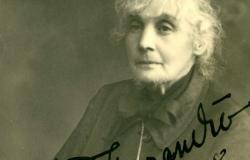At 9am on Wednesday 18 April 1944, eighty years ago, the general strike “against hunger and terror” called by the CLN of Turin began, a dress rehearsal for the insurrection of the following year. Despite the war regime and fascist censorship, the streets are full of clandestine writings and posters. The first to stop were the workers from Borgo San Paolo, Regio Parco and Fiat. At 10 am the city is paralysed, industries blocked, trams stopped, shops closed, offices and schools boarded up, interurban railways blocked. Trucks of fascists travel the streets at full speed to intimidate with their presence; militiamen in black shirts drive trams to demonstrate that public transport works. But fascists and militiamen soon retreat. Turin responds enthusiastically to the appeal of the National Liberation Committee. One year left until liberation from the Nazi-fascist dictatorship.
The ferment spreads in Piedmont and throughout the North. On 4 April 1944, Holy Tuesday, the bishops of Piedmont, gathered with Mary Help of Christians, wrote a worried letter to the clergy and people for Easter 1944: «Four years of war have now passed, and instead of the long-awaited peace here is the invasion of our Italy; here are the wild incursions that wreak havoc on defenseless populations; Rome violated; Italy divided; disoriented souls”. The writer is Giuseppe Angrisani from Turin, bishop of Casale Monferrato.
In a conference in 1986 on the Resistance in Piedmont, Msgr. Franco Peradotto reveals
that «of the famous letter of the Piedmontese bishops for Easter 1944 the main writer was Msgr. Giuseppe Angrisani, bishop of Casale Monferrato”, also because the Turin-born Angrisani is the author of “Communism and Christian social justice” published by Marietti in 1949. Subtitle “Conferences especially useful for parish priests and AC lecturers with a letter of introduction from His Eminence Mr. Cardinal Maurilio Fossati, Archbishop of Turin”.
The 18 subalpine bishops address «those of our children who have the force of arms in their hands, we say with the Baptist: “Abstain from every vexation and every slander and be satisfied with your pay”. Weapons are for the protection of order, for the defense of the homeland, that is, of the citizens. They must never be an instrument of ferocious revenge, especially against populations and families.” Very clear words addressed – without naming them – to the German occupiers, to the fascists and republicans, to the partisans, especially communists: “Everyone must follow the natural and divine law and respect the laws of humanity.” The bishops “condemn all forms of hatred, revenge, retaliation and violence”.
The second category is “the dear working children who we have begun to approach in the factories”. «Easter in the factory» is a practice that is spreading. The bishops felt the Communist Party’s grip on the working masses growing enormously which, in Turin alone, went from 700 members in March 1943 to 16,000 in March 1945, to 66,265 in September 1945. Despite the “communist sirens”, the workers retained ” in the vast majority, a fund of goodness and sincerity. Remember that the root of every claim lies in the doctrine proclaimed by the Worker of Nazareth, Jesus; that equality, brotherhood, justice came only from Him. Don’t be fooled: there is only one Messiah, Jesus.” Leo XIII in 1891 called for “the workers’ recovery in the face of the deaf opposition of indifferent rulers and greedy owners”; In his Christmas message of 1942, Pius XII states that the worker “has the right to have some small private property so as not to see himself condemned to economic dependence and servitude”. The Church defends the workers «from the false prophets who claim to reduce man to matter, relegating God to the attic among fairy tales, fighting religion as the opium of the people, overthrowing morality as the prop of the rich exploiter, denying the soul with eternal values, closing the sky to the irrepressible aspirations of the beyond, breaking up the family and throwing the masses into violent class struggle”.
A full-scale attack against the communists, strengthened by Pius XII’s condemnation in front of 25 thousand workers on 13 June 1943: «Salvation and justice lie not in the revolution but in harmonious evolution. Violence has never done anything other than demolish, not elevate; ignite passions, not calm them; accumulate hatred and ruin, do not unite the contenders”. It is the anticipation of the harsh condemnation that the decree of the Holy Office of 1 July 1949 will hurl against communist ideology and practice. This is not, formally, excommunication but the official declaration that Christians who profess, defend and propagate communist doctrine find themselves ipso facto excommunicated because, by adhering to a materialistic philosophy, they are apostates.
The workers are exhorted to shy away from the class struggle; to think «of the many leaders of yesterday who in the moment of the struggle changed their coats, abandoning the people in the fray»; to consider “the still smoking ruins of Spain where communism carried out its cruel experiments”. Then the tear-jerking appeal: «Look into the eyes of your mothers, your wives, your children and then raise them to contemplate the Divine Crucifix and sweet Mother Mary; and say if you can applaud, accept, establish a system of life that would reduce everything to a monstrous state device, which nullifies human dignity and the joy of the domestic hearth.”
The bishops exhort everyone to penance, to conversion of life, to the amendment of customs. The description is apocalyptic: «Blasphemy and the unleashing of the most brutal passions become more widespread every day: and the behavior of this poor humanity, young and adult, who pack trains and buses every day is a frightening symptom». In essence «a frivolous, light, worldly, pagan life. The greed for gain has replaced the cult of the true God with the cult of the golden calf; he made Judas renounce every feeling of humanity for the thirty pieces of silver. Lewd or even obscene entertainment desecrates holidays, desecrates families and consciences. The feelings of honesty, faithfulness and fear of God are replaced by the murky passions of lust, adultery, unbridled independence in customs. Vanity, luxury, the obstinate, methodical, ostentatious triumph of vulgar and immodest fashions grow every day like a tide of mud, causing punishments and lighting fires of concupiscence.”
The bishops address the priests: «Just as you have been exemplary in remaining firm in your place in the midst of incursions and guerrillas, near your destroyed or damaged churches and canonical houses, so you have been magnificent workers of good in the field of charity. Refugees and displaced persons, destitute and homeless, have found in you their protector and father.” A praise to the Piedmontese clergy that he well deserved: «Voices have been raised in your praise from a thousand places. May the Lord bless you and reward you.” Since even priests can let themselves be bewitched by “communist sirens”, then “we recall the provision of the art. 43 of the Concordat which prohibits ecclesiastics and religious from joining and joining any political party.”
A heartfelt thought to the priests who fell “victims of their charity. God has written them in the register of his glory. In their memory and following their example, each of you remains firm in his place of work and responsibility; let each one precede with the light of example.” Particular commitment must be made by priests with «many generous souls who gather around us to help us bring Jesus back to darkened minds, to embittered and disappointed hearts, to disconsolate families, to a torn society. Among these generous souls” are remembered the members of Catholic Action “who, despite the difficulties and harshness of the moment and the painful adversities and misunderstandings, continue their activity with generous loyalty”, an activity “necessary and precious, especially in field of religious culture, charity, training and preparation for social reconstruction on Christian foundations”.
The bishops conclude: «May the Lord bless poor, tormented humanity; bless and reconcile the beloved homeland in harmony of souls; bless those who work with pure intention for the common good and to rebuild lost goods; bless those who in silence and industriousness accept restrictions, work, duty. Bless those who put the practice of brotherly love, help to the needy, mercy for the destitute wanderer above all else, seeing and helping Him in every creature, as Giovanni Bosco and Giuseppe Benedetto Cottolengo taught us to do , the dear Saints of our Piedmont”
The letter is signed by Cardinal Maurilio Fossati, Archbishop of Turin; Giacomo Montanelli archbishop of Vercelli; Umberto Rossi bishop of Asti; Nicolao Milone (Alessandria); Giovanni Bargiggia (Vigevano); Gaudenzio Binaschi (Pinerolo); Umberto Ugliengo (Susa); Francesco Imberti (Aosta); Sebastiano Briacca (Mondovì);
Luigi Maria Grassi (Alba); Giacomo Rosso (Cuneo); Paolo Rostagno (Ivrea); Carlo Rossi (Biella); Leone Ossola apostolic administrator of Novara; Giuseppe Angrisani bishop of Casale Monferrato; Egidio Luigi Lanzo (Saluzzo); Dionisio Borra (Fossano); Giuseppe dell’Omo (Acqui Terme).
Pier Giuseppe Accornero
Tags: years Turin strike hunger terror






